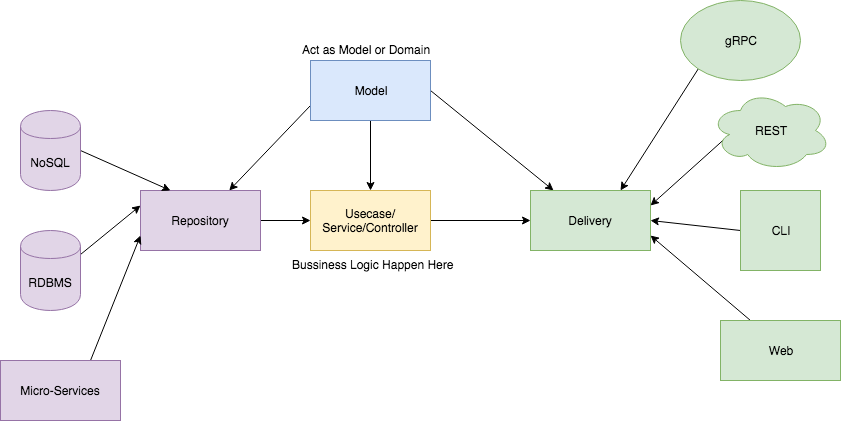The server api should serve for this endpoints:
GET /users/{id}GET /users/{id}/accountsGET /accounts/{id}
All endpoints should return json payloads matching the following criteria.
/users/{id}: A detail of users including list account_ids that have been owned by the user that are equal to the passing {id} from the database.
Example:
{
"id": 1,
"name": "Alice",
"account_ids": [
1,
3,
5,
...
]
}
/users/{id}/accounts: A list detail of accounts that have been owned by the user that are equal to the passing {id} from the database.
Example:
[
{
"id": 1,
"user_id": 1,
"name": "A銀行",
"balance": 20000
},
{
"id": 3,
"user_id": 1,
"name": "C信用金庫",
"balance": 120000
},
{
"id": 5,
"user_id": 1,
"name": "E銀行",
"balance": 5000
},
...
]/accounts/{id}: A detail of accounts that are equal to the passing {id} from the database.
Example:
{
"id": 2,
"user_id": 2,
"name": "Bカード",
"balance": 200
}- Finish three APIs in Requirements.
- Adding mutation APIs for
accounts,users. - Adding login flow.
- Apply caching for optimize API.
- Adding some middlewares hor http handle steps like
recovery,cors,authenticate,rbac.
The Architecture using the clean architecture that control the system split to 3 layers.
This section list any major frameworks/libraries used to bootstrap project.
- Using snowflake engine for generate id.
- Using paseto engine for generate token.
- Using lru for in memory caching.
- Using pq for postgres driver.
- Using cobra for generate command line.
.
├── LICENSE
├── Makefile #for quickly command line
├── README.md
├── app-exe # binary of go build
├── cmd # contain command line for running
│ ├── root.go
│ ├── srv.go
│ └── start.go
├── configs # contain config object and environment loader
│ ├── address.go
│ ├── configs.go
│ └── database.go
├── deployments # using for deployments
├── developments # using for developments include docker, env file
│ ├── dev.env # environment file for dev environment
│ └── docker-compose.yml # docker compose file for dev environment
├── go.mod
├── go.sum
├── internal # contain layers that applying clean architecture without export to outside this module.
│ ├── deliveries # contain delivery/transport layer of clean architecture
│ │ └── http
│ │ ├── account.go
│ │ ├── auth.go
│ │ └── user.go
│ ├── entities # contain entities (data transfer object)
│ │ ├── account.go
│ │ └── user.go
│ ├── models # contain models that including request, response.
│ │ ├── account.go
│ │ ├── auth.go
│ │ ├── common.go
│ │ └── user.go
│ ├── repositories # contain repository/store layer of clean architecture
│ │ ├── account.go
│ │ └── user.go
│ └── services # contain service/domain layer of clean architecture
│ ├── account.go
│ ├── auth.go
│ └── user.go
├── main.go
├── migrations # contain migration files for database
│ ├── 00001_migrate.up.sql
│ └── 00002_migrate.up.sql
└── pkg
├── cache # contain interface of cache pattern
│ └── cache.go
├── crypto_utils # contain password util
│ └── util.go
├── database # contain database util
│ ├── executor.go
│ ├── type.go
│ └── util.go
├── http_server # contain http server that follow native http lib by go
│ ├── common.go
│ ├── http.go
│ ├── http_test.go
│ ├── middleware.go
│ ├── response.go
│ ├── util.go
│ ├── util_test.go
│ └── xcontext # contain context of http handler
│ ├── context.go
│ └── ctx.go
├── id_utils # for id utility
│ ├── id.go
│ └── snowflake.go # snowflake id generator
├── logger # for logger
│ └── logger.go
├── lru # for lru cache
│ └── cache.go
├── postgres_client # postgres client
│ ├── client.go
│ └── tx.go
├── processor
│ └── processor.go
├── reflect_utils # contain reflect utility
│ ├── util.go
│ └── util_test.go
└── token_utils # contain token utility
├── authenticator.go
├── jwt.go
└── paseto.go- Make sure you have Go installed (download). Version
1.21or higher is required. - Docker (version
20.10.22+)
First of all, we should set up environments:
copy ./developments/.env.example ./developments/.env
copy ./developments/dev.env.example ./developments/dev.env- Starting database:
make start-db- Migrate:
make migrate- Simple start server:
make startWe already migrate a default super admin user by admin and donkihote.
curl --location 'localhost:8080/auth/login' \
--header 'Content-Type: application/json' \
--data '{
"user_name":"admin",
"password": "donkihote"
}'Create user:
curl --location 'localhost:8080/users' \
--header 'Content-Type: application/json' \
--header 'Authorization: Bearer ${given_token}' \
--data '{
"name": "Le Duy Dat",
"user_name": "duyledat197",
"password": "1234567",
"role": "USER"
}'Get user detail (include account ids) by id:
curl --location 'localhost:8080/users/{id}' \
--header 'Content-Type: application/json'Create account by user id:
curl --location 'localhost:8080/users/{id}/accounts' \
--header 'Content-Type: application/json' \
--header 'Authorization: Bearer ${given_token}' \
--data '{
"name": "Account 1",
"balance": 100
}'Get accounts by user id:
curl --location 'localhost:8080/users/{id}/accounts' \
--header 'Content-Type: application/json'Get account detail by id:
curl --location 'localhost:8080/accounts/{id}' \
--header 'Content-Type: application/json'

